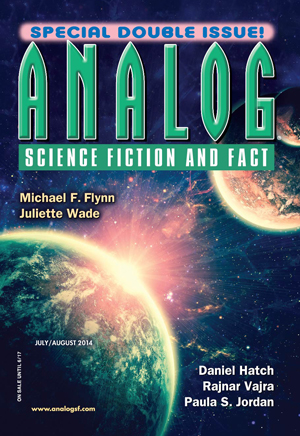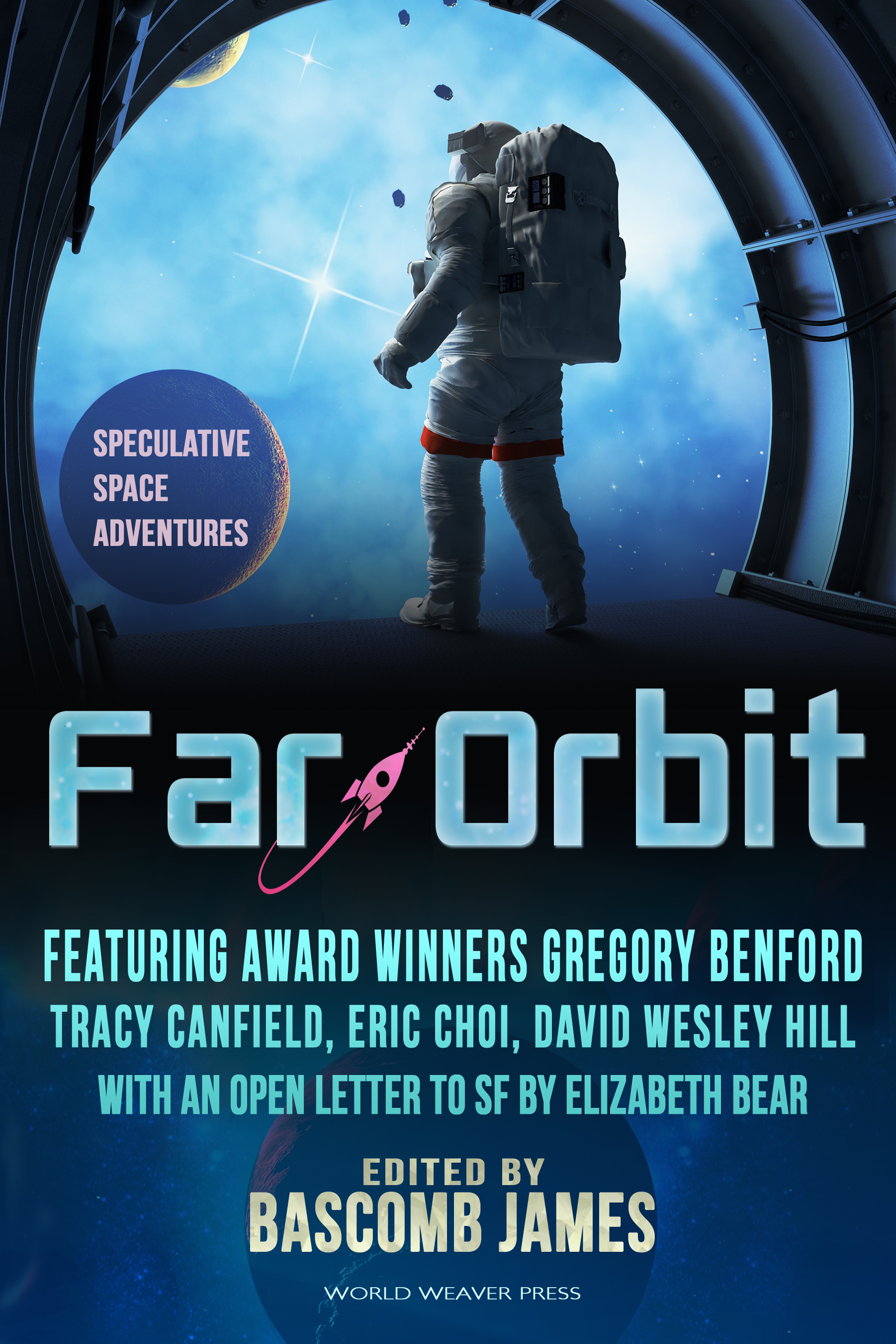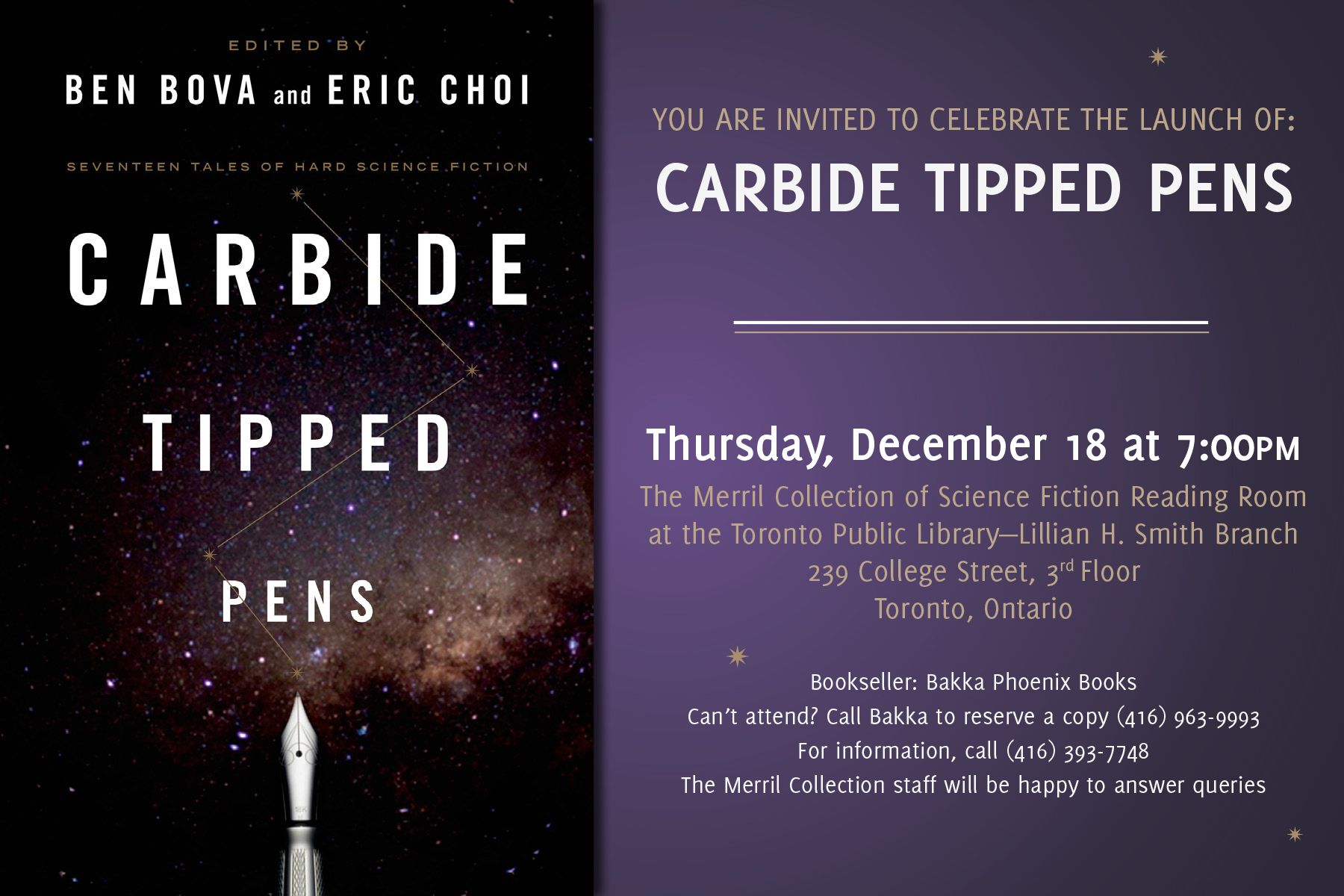 For more information: [Toronto Public Library] [Facebook Event]
For more information: [Toronto Public Library] [Facebook Event]
All posts by EricChoi
Carbide Tipped Pens Now Available; Reviewed on Bureau42.com
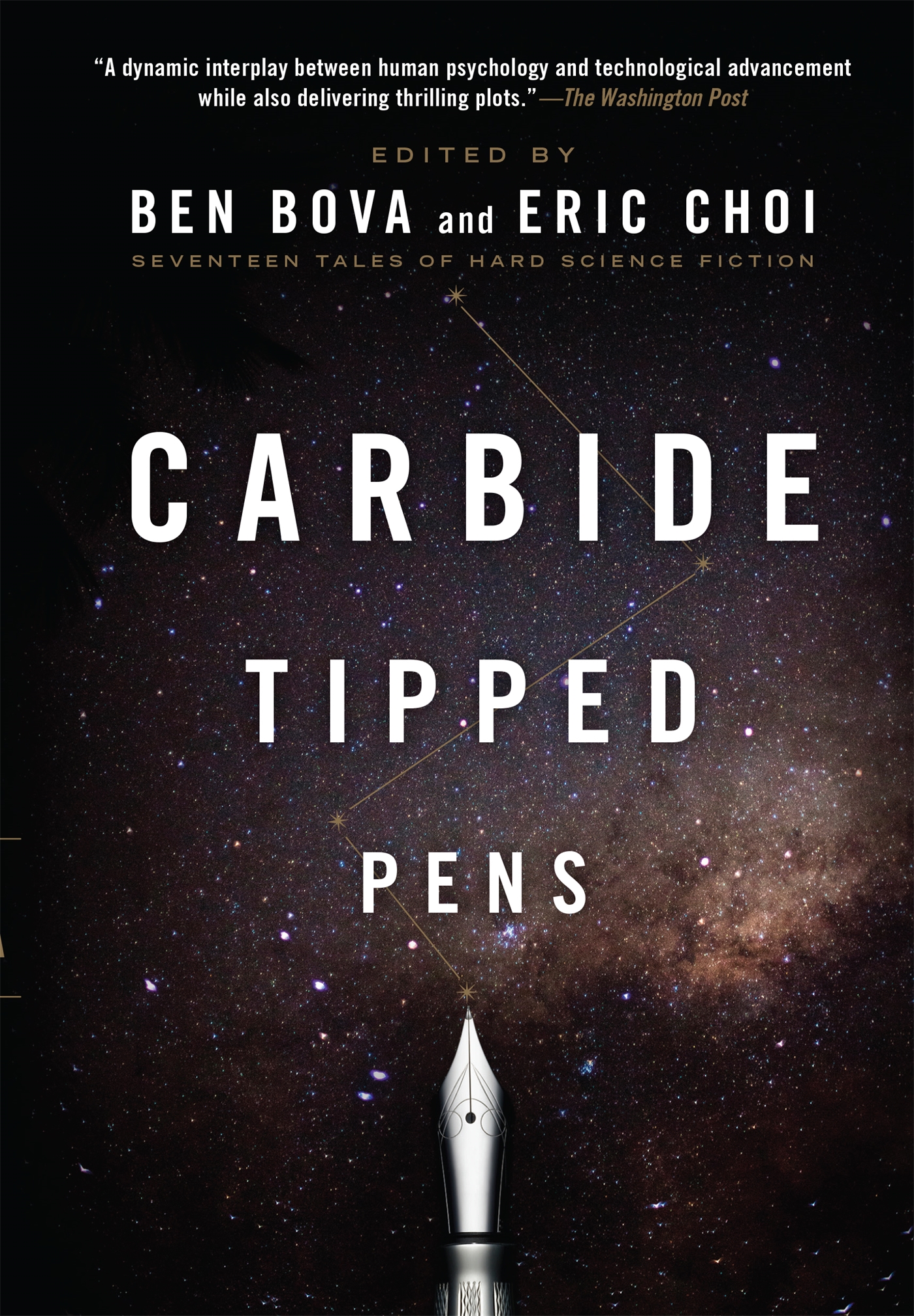
Carbide Tipped Pens, the new hard SF anthology from Tor co-edited by Ben Bova and me featuring seventeen stories by today’s top authors, is now available in hardcover (Amazon, !ndigo, Barnes & Noble) and ebook (Amazon, !ndigo, Barnes & Noble, Kobo, Google Play).
Coinciding with the book’s release, Bureau42.com has posted its review. Kudos to Daniel H. Wilson, Nancy Fulda, Dirk Strasser, Leah Petersen, Gabrielle Harbowy and David DeGraff.
“If you’re looking for an SF anthology to purchase this season, I heartily recommend Carbide Tipped Pens.”
Library Journal Review of Carbide Tipped Pens
Library Journal has a review of Carbide Tipped Pens. Kudos to Doug Beason, Leah Petersen, Gabrielle Harbowy, Greg Benford, David DeGraff and Aliette de Bodard. The book will be available starting next week.
“Compiled by Bova, a six-time Hugo Award winner, and Choi, a rising star of the short form, these 17 stories...are considered ‘hard’ SF. As Choi explains in his introduction, hard SF is the ‘literature of change’, interested in the effects of science and technology on society, while still telling human stories. This is a solid anthology, with only a few missteps; some of the best selections include Doug Beason’s ‘Thunderwell’, a tense tale of efforts to save a human mission to Mars; ‘Skin Deep’ by Leah Petersen and Gabrielle Harbowy, about a lawyer who confronts a company that makes medical tattoos; and David DeGraff’s ‘SIREN of Titan’ in which an artificially intelligent rover on the surface of Saturn’s Titan moon decides to go off-mission and explore, much to the consternation of her handlers back on Earth. Verdict: A pleasing sampling of stories, all showing the range found even within a subgenre like hard SF. Well-known novelists such as Gregory Benford appear alongside Aliette de Bodard and other top writers of the short form, plus some talented newcomers are featured.”
“Túshūguăn” and Author Spotlight in Ricepaper
My new short story “Túshūguăn”, set in a post-apocalyptic Vancouver, appears in Ricepaper magazine’s special Speculative Fiction edition (Issue 19.3, Fall 2014) which was guest co-edited by Derwin Mak and JF Garrard. This special issue also features stories by John Matsui, Tony Pi, JF Garrard and Melissa Yuan-Innes, with cover art by K‑Koji.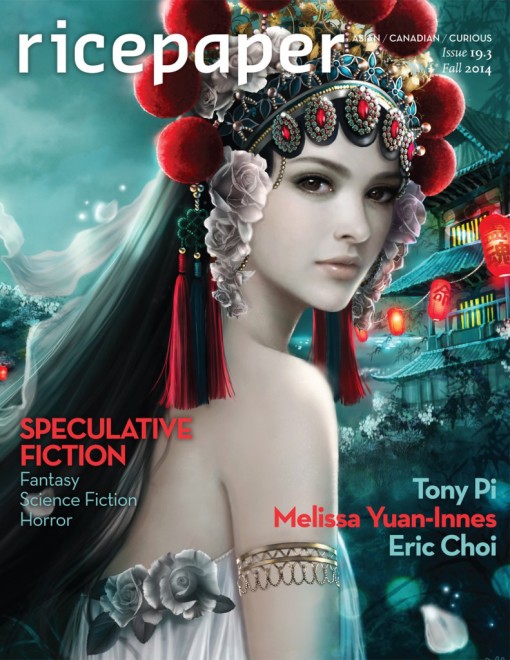 Each issue of Ricepaper also has a department called “Author Spotlight”, which asks some random questions to the issue’s contributing authors. Here are my answers:
Each issue of Ricepaper also has a department called “Author Spotlight”, which asks some random questions to the issue’s contributing authors. Here are my answers:
My favourite horror movie is Shaun of the Dead, because humor always goes well with horror. As a writer, I greatly admire the cohesiveness, depth and intelligence of Edgar Wright and Simon Pegg’s script. There is not a single scene that is wasted nor a single line of dialogue that does not have meaning in that film.
I first became interested in science fiction, fantasy, or horror when I saw the Star Trek original series episode “Devil in the Dark” when I was about eight years old. It scared the hell out of me, but something made me keep turning back to the TV to watch more. I try to avoid wearing red shirts.
My pet peeve in science fiction, fantasy, or horror is when they are all lumped together, for example, on bookstore shelves. Come on people, they are completely different genres!
My favorite spaceship captain is former NASA astronaut John Young. He piloted the first Gemini mission in 1965 (on which he smuggled aboard a corned beef sandwich), commanded Gemini 10 in 1966 and orbited the Moon on Apollo 10 in 1969 before going on to command three more historic space missions: Apollo 16 in 1972, the first Space Shuttle flight in 1981, and the first Spacelab mission in 1983. Young had the longest career of any NASA astronaut (over 40 years) and is the only astronaut to have piloted or commanded four different types of spacecraft.
The book I’m reading now is The Chinese in America by Iris Chang. Thread of the Silkworm, her definitive biography of Chinese rocket scientist Tsien Hsue-Shen, was a crucial source of research for my alternate history story “The Son of Heaven” in the anthology The Dragon and the Stars. Chang’s tragic death by suicide only a year after the publication of The Chinese in America, at the age of 36, robbed us of an important and eloquent voice.
If I had to chose another place to live, it would be not a place, but a time. Some years before his death, the English engineer and mathematician Charles Babbage reportedly told a friend that he would gladly give up whatever time he had left, if only he could be allowed to live for three days, five centuries in the future.
Book Trailer for Carbide Tipped Pens
Watch the book trailer for Carbide Tipped Pens, coming December 2 from Tor.
Kirkus Review of Carbide Tipped Pens
Kirkus has an advance review of Carbide Tipped Pens. Special kudos to Gregory Benford, Kate Story, Nancy Fulda, Daniel H. Wilson and David DeGraff. The book will be available starting December 2, 2014.
“A science fiction anthology that strikes a balance between radical scientific ideas and grounded human emotion...Hard-core sci-fi fans will gobble this up, and readers newer to the genre should give it a chance, too.”
SciFi4Me Radio Interview
My recent interview on SciFi4Me Radio is online.
“Crimson Sky” in the July/August issue of Analog
My new short story “Crimson Sky” is now out in the July/August double issue of Analog Science Fiction and Fact.
Far Orbit Released, and Q&A with World Weaver Press
Far Orbit: Speculative Space Adventures, a new anthology edited by Bascomb James that includes my story “From a Stone”, is now available in trade paperback (Amazon, Barnes & Noble) and ebook (Amazon, !ndigo, Barnes & Noble, Kobo). Scroll down for my Q&A with World Weaver Press.
WWP — What was your inspiration for creating your Far Orbit story?
EC — “From a Stone” was inspired by a number of things. I had read a magazine article about SETI, the Search for Extraterrestrial Intelligence, which discussed the challenges of not only trying to understand an alien species that may have no common frame of reference with us, but also what exactly would constitute irrefutable proof of intelligence in the first place. At around that time I was also taking a planetary geology course at the University of Toronto, and a lot of the science portrayed in “From a Stone” came from that. I was also greatly influenced by the book A Man on the Moon, Andrew Chaikin’s superb history of the Apollo program, much of which dealt with the compromises inherent in trying to do science and exploration within the practical and political constraints of a government space program. The fictional ship in “From a Stone” is named for Apollo 17 astronaut-geologist Harrison Schmitt, and I was thrilled to meet Dr. Schmitt a few years ago and actually gave him a copy of the story.
WWP — How do you feel when you finally finish a story and send it off? Relief? Trepidation? Exultation? Something else?
EC — Mostly relief, perhaps with a little bit of exultation. The temptation to keep rewriting is always there, but then I remember Heinlein’s Rules.
WWP — Why do you write science fiction stories? What is it about this genre that appeals to you?
EC — As an aerospace engineer who has worked on a number of real space missions like the Phoenix Mars Lander, I guess you can say some parts of my life are a bit like a science fiction story, so why not write about it? There have always been important linkages between science fiction and the real-life space program. Our knowledge of the Universe, our attitudes towards science, and our understanding of science and technology are some of the key influences to science fiction. In turn, science fiction has helped shape perceptions of the space program, in some cases influencing the politics and funding of space projects and even the design of the missions themselves, as well as inspiring people like me to pursue careers in engineering and science. This is what appeals most to me about the genre.
WWP — Who are your favorite science fiction authors?
EC — Arthur C. Clarke had a huge influence on me. This is why I was so touched when Bascomb James compared “From a Stone” to Rendezvous with Rama in his introduction to my story.
WWP — When reading for enjoyment, some people read a story only once while others reread stories. Which type of reader are you?
EC — Definitely a re-reader. I often discover new things on subsequent readings, certainly with novels but also in many cases even with short stories.
Welcome to My New Website!
Welcome to my new website. A big thank you to Mark Shainblum for setting it up! It’s still a work in progress, of course. Any bloopers are mine alone.
